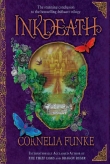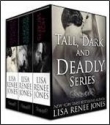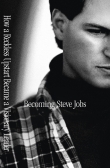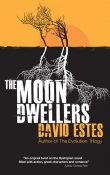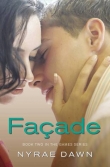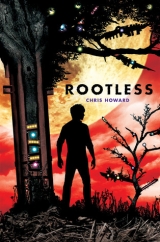
Текст книги "Rootless"
Автор книги: Chris Howard
Жанры:
Классическое фэнтези
,сообщить о нарушении
Текущая страница: 4 (всего у книги 17 страниц)

Frost was a whole lot faster than I’d expected. He was juiced on his pipe and moved like a blur. His fingers clawed the dark as I bounced and ducked. Spun. Rolled away. He was too fast and too damn big and he sealed all my exits as he tumbled down upon me.
I was trapped. Pinned to the ground with my face in the dirt, my back feeling like it might snap in two. Frost just sort of waddled atop me and sat there. He shoved the crystal pipe at me, the flame crazy in my eyes.
“Did you need more supplies, Mister B?” Frost said. “Or did you get your grubby little hands on something else?”
I struggled but it was useless. My muscles barely twitched when they should’ve been beating his fat ass into tomorrow. He was sweaty and reeked and I wanted to gouge his eyes out, shove his ugly teeth down his throat.
I cried out. Tried to drain the fury from inside me.
“Quit your whining.” Frost whacked me on the head.
I screamed again, loud as I could. He sat off me and rolled me over, pinned my chest with his flabby knees. He was sucking at his filthy pipe, and the crystals were bright enough I could see him draw a knife with his right hand just as he pulled my shirt open with his left.
It all happened at once. The thin blade pressing at my belly and the tent peeling apart behind me. Sunlight illuminating the ugly look in the fat man’s eyes.
“Stop,” a voice screamed from the doorway. Zee’s voice.
Frost stared away from me and squinted at the gash of daylight. I felt the knife still pressed at my belly, breaking the skin now. Breaking my freaking skin.
“You can’t,” Zee said, and she let the tent flap fall thick behind her. “Let him go,” she hissed through the void. “The trees,” she said. “The trees.”
Frost kicked me in the head as he got to his feet. He thumped over to the corner and fired up a neon strip that hung from the ceiling. The tent pulsed with a cruel white light, and the walls bulged inward as the wind howled outside. Frost pointed his knife at Zee.
“Talk,” he said.
She ran up and pushed me over, everything happening too fast for me to glimpse her face, catch her eyes. I just felt her hands upon me, groping at me, digging in my pockets. She coughed as she stoked up the dusty floor.
“Here,” she said, trying not choke. And as she backed off me, I rolled on my side and watched Frost staring at the photograph, his eyes all stoned and wide.
“It’s his father,” Zee whispered.
“How’d you get this?” Frost jabbed the picture with his knife, his face scrunched and twitchy.
“His father,” Zee said. “Think about it.”
Frost thumped at the steel box. There was a clank, then a clicking sound, and then damned if the box didn’t start to open right there in front of us.
Frost probed his thumb at the bowl of his pipe, working up the crystal. Then he shoved the picture in his pocket and turned to the skinny broad with the gypsy earrings who was climbing out of the steel box like it’d just given birth to her.
I had a clear shot at the door and bolted for it. But Frost was too fast and seized the back of my neck with his pudgy claws. He dragged me across the dirt with my legs kicking, shoved me toward the steel container.
The gypsy woman was jabbering and waving her arms around, and her wrists shook with shiny bangles, her hands aflutter in the neon light. Frost just ignored her. He lifted me up like I weighed nothing and he threw me down inside the box, right on top of the woman I’d come looking for.
I was sprawled out on top of Zee’s momma but she didn’t move a muscle. My face was buried in her belly, pressed up against the tattoo tree, and I could breathe in the smell of her skin. I squirmed up, but Frost forced me down, keeping me inside that steel coffin and yelling at the gypsy woman to get back inside it with me.
“Your wife’s still in deep,” the gypsy said.
“Then leave her sleeping. But hook up the young punk here and tell me what you see.” Frost pushed the gypsy in on top of us so we were squashed tight.
“What direction?” the gypsy called, and Frost held up the door for a moment.
“His father,” Frost whispered, staring down at me. “Everything he’s got.”

There was barely room to breathe, let alone move. The inside of the container was bathed in a blue glow and I was jammed against Zee’s mother, wriggling my way upright.
I squatted against the ceiling and that was as tall as I was going to get. The gypsy sat across from me, cross-legged and stooped, and I realized the gypsy wasn’t a woman at all – it was a man. Dressed up in a skirt and everything. Stubble on his chin, chest as flat as dirt.
“You’re the Tripnotyst?” I said, like an idiot.
The gypsy just winked at me as he tapped a control pad, a few of the buttons giving him trouble as he jabbed and poked with spindly fingers.
What air was in there was stale and thin and I felt about as strangled as when Frost had sat on top of me. I glanced down at Zee’s mother, her tattoo eerie in the electric blue.
The woman’s face was shut down, her muscles loose and her jewelry dusty. Her eyes were guarded by a pair of goggles, the lenses made of old wires and bits of metal.
“Put those on,” the gypsy said, his voice as reedy as he was.
“What you gonna do?”
“Just put the goggles on. Ain’t neither of us got a choice about it.”
“You gonna drug me up?” I said, staring at the limp body beside me.
“Going under or not, that’s up to you. But once you start remembering, you’ll most likely want to shut down.”
The gypsy had me lie back on top of Frost’s wife. I tugged the goggles off her and started yanking them down over my own head.
“Try to relax,” said the Tripnotyst, which was about the dumbest thing I’d ever heard. I struggled with the goggles, my elbows whacking at the steel walls. And then I glimpsed the patterns drawn across the blue ceiling.
I stopped working at the goggles and just squinted up at the image that was stretched above me, floating and shaking, drifting in and out of focus on the screen.
It was a wall. A massive, cement wall. A thin section close to the ground had been scribbled on, blackened with graffiti, but the top of the wall was all hidden by clouds.
I knew it was the South Wall, though I’d never seen it before, not even in pictures. It runs all the way across, from the Surge on one side to the Surge on the other. Was built before the Darkness, to keep people in the south stuck behind it.
“Put your goggles on,” the gypsy said.
“It’s the South Wall,” I whispered. “Ain’t it?”
“Nope.” The gypsy punched a switch and the image disappeared from above me. “It’s just a memory.”
The goggles sealed tight and pinched my skin, blocking out any drop of the blue light. My face felt sticky and I tried to keep the panic within me, but I was blind now. Blind as well as trapped.
“Keep your eyes closed,” the Tripnotyst said. “Less you want to lose your eyeballs.”
I squeezed my eyes shut and held my breath as a thousand tiny spikes pricked my eyelids. I yelled out in horror but the needles stopped right where they were, not coming any closer, just locking me in place.
“Don’t move,” the gypsy said, his thin voice softer now, almost soothing.
Then music started. Strange, pulsing music. Gurgled beats and squelching bleeps and belches. The sound of bells rose up from the medley and I felt like I’d been stuck inside a wind chime, ringing and spinning and all blown to pieces.
“Welcome to the vibration of sound,” a voice said. It was the gypsy’s voice, but it had changed, each word booming now, bathed in echo. “Relax and let it ferry you away.”
Every part of me screamed to stay present, but I felt myself unraveling, the music opening me. Untying me. I tried to focus my thoughts on Frost, on escape, on getting myself out of this weird coffin and setting myself free.
Free.
That was how I felt as I slipped into nothingness. Better than sleep, better than dreaming. I tried to fight the feeling for a moment, but then I gave up.
I mean, who doesn’t want to be free?
I saw trees. Everywhere. Great labyrinths of shiny metal. Every forest me and Pop had ever built. All our trees grown tall and unruly and not a rusty spot between them.
At the center of the trees, my father was a hundred feet high, perched atop a strip of scaffold. And I was on his back, buried in a blanket, the fabric tied to his shoulders and wrapped around his waist.
My father was building. He was hammering out finishing touches. Bending at metal so the sun caught right. I felt his arm swinging the hammer, watched sweat beading on the back of his neck. When he welded steel joints, I saw hot sparks fly. And as he descended the ladders, I bounced and jostled and giggled.
On the ground, my father stared up at the canopy and I stared at it with him, listening as the wind blew tunes through the branches, watching as the breeze shook rhythm from the leaves.
I heard the gypsy’s music again.
And then I was older. Curled up in the back of the wagon, eating popcorn and listening to my father read.
He told me stories of faraway places that had once existed. Tales told by countless fathers before him. Stories of bears and wolves and salmon and streams. The smell of wood on a fire. The sound of birds singing and the brush of their wings.
My father spoke me to sleep and I dreamt of waking to a real forest, our trees grown shaggy and breathing.
Bark and moss and twigs and spiders.
And in the dream I tried to wake my father so he could see the trees, but the sky grew fierce with the sound of locusts. And when silence returned, every tree was thin and crippled. Black and cold. And as the wind blew, the trees began falling upon us, each one of them tumbling and snapping, until I began catching the trees and planting them in ashes.
The music rose again. And with it, the trees I had planted all faded, and me and Pop were sat in the dust out past the cornfields. We had our backs to the corn, and we watched Vega glittering in the distance, like a light someone forgot to switch off.
One more day and we’d have reached the city. But then it was night and Pop was waking me, telling me there were voices outside. And the dust storm was raging and sucking the sky inside it, and I wanted to go find Pop but I was too damn scared. And it was too late when I finally crawled out of the wagon. There was no trace left after the storm had quit. No footsteps or shadows. Just dirt stretching ahead of me, all the way to the walls of the Electric City.
Pop was gone.
Taken.
Vanished like grass.
I could see myself twisted in the back of the wagon. My face smudged with dirt and swollen with tears, all of me shaking as it sunk in how alone I was now and always would be.
And the rest was all blank.

When I opened my eyes again, I felt damp and shivery. The goggles were gone and I was back outside the steel box, piled in the corner of the tent with Frost’s boot heel digging in my ribs.
“That was it?” Frost said. “All of it?”
“Everything,” said the gypsy.
I blinked up at the two of them but lay still, trying to figure out some plan to escape.
“He’s no good to me,” Frost spat. They’d been watching the screen inside the box, the lid flipped open, but the Tripnotyst punched the thing closed, sealing my memories back inside.
“Usual payment?” Frost said, and the gypsy grinned as Frost pulled a pouch from his back pocket and threw it on the dirt. Then Frost squatted close to me and pulled the knife up to give me a good look at it. The dirty pearl handle had been patterned once but was now worn smooth. The blade shimmered in the neon light.
“Old man ran off and left you, did he?” Frost faked a frown.
“He didn’t run off,” I said, teeth clamped tight. “He was taken.”
Frost laughed. He ran a stubby finger along the edge of the blade. Then he knelt on my chest and put his hand on my face, forcing me down as I struggled against him.
“Tell you what, Mister B. I catch up to that old man of yours, I’m gonna give him your best regards.”
“Leave him,” Crow boomed behind us, his voice like thunder as he burst into the tent.
Frost paused, the blade pressed at my windpipe. I tried not to breathe.
“Any news?” Frost said, staring up at Crow.
“Aye. There’s one in Vega. And the truck’s ready to go. So leave the boy. Miss Zee is back and you don’t want his blood on your hands.”
“You know what, watcher?” Frost struggled to his feet. “You’re absolutely right.”
He threw the knife to Crow.
“You do it,” Frost said, stomping out of the tent. “And maybe next time you won’t be so careless.”
I glanced around the tent. The Tripnotyst was nowhere to be seen. And neither was Zee or her mother.
Just me and Crow, then. Just like old times.
Crow shook his head as he came over to me. I scrabbled to my knees, glancing toward the street but keeping an eye on the watcher as he stepped closer. I took too long to make a move and there was no move anyway. And then Crow was right above me, fingering the knife and bouncing the weight of it in his hand.
“I told you not to go messing, little man.” Crow was still shaking his head, making out like he was real solemn about having to kill me. “So why you want to go messing for?”
I didn’t say anything.
“Should’ve stuck to building,” Crow said, staring at the door to the tent. He held the knife above his head and then cast it down. The blade spun and blurred, and then it sank into the dirt beside me.
Crow squatted down and yanked the knife from the sand. He wiped the blade on the fabric woven through his beard and he fixed me with his brown eyes. Then he pulled his shades down and stood.
“See you in the next one, little man,” Crow said as he stepped to the door, and I watched as he threw the flap open and disappeared into daylight.
Couple seconds, maybe. That’s how long I lay there with my heart beating a hole through my chest. Then I shot up and bolted to the door. I slid on the sand and tugged at the tent flap, pulling it high enough I could peer out at the world.
Everything was still there – sun, dust, and wind. I pulled my goggles on and choked on the dirt clouds. I could see strugglers down the street, scurrying away as a truck bellowed and smoked and grew small in the distance.
“Come on out.” The Tripnotyst was lounging in a plastic hammock on the corner, smoking a crystal pipe.
“That how he pays you?” I said, scrambling up and striding over. I pointed at the pipe full of poison.
“Good shit, my friend. But there ain’t enough to be sharing.”
“He ever go in there himself?” I said.
“Fatty?”
“Yeah.”
The Tripnotyst shook his head. “Just the pretty lady. And her girl.”
“Zee?” I said. She’d either betrayed me in the tent or she’d been trying to buy us some time. Either way, I was on my own again. “What did she see?”
“Listen, friend. I might be high as one of your metal treetops, but I don’t go dishing out beta on clients. Not to bums with no way of paying.”
“She see the Wall, too?” I said, squatting down next to him.
“The Wall?” The Tripnotyst laughed, then he started coughing. “That’s just the start, brother. Now give up. And relax. Neither of them girls make a damn bit of sense anyway.”
“How much is it?” I said. “For a session.”
“More than you can afford, bro. I don’t deal in forests.”
“What about a book? Would you take that?”
He studied me for a moment. “Depends on the quality,” he said. “And the size.”
“You can read?”
The Tripnotyst nodded, his eyes glazing over now from the crystal. “What you want to remember?”
“It’s not for me,” I said, standing up. “But give me two hours. I got someone ready to trip his balls off.”

When I got back to the scrap farm, the Rasta was sitting on top of my wagon and singing a song about Babylon. Old One Eye raised both eyebrows at me as I walked back to where I’d stashed the car. I just nodded and smiled like this was business as usual. Then I climbed on top of the wagon with my new crazy pal.
“I need you to tell me where you saw my father,” I said. “I need you to remember things.”
The Rasta stopped singing and stared at me. “Oh, I remember, man. Promised Land. Across the ocean.”
“But how’d you get there?”
The old guy just grinned and pointed north, then south, east, and west. “The King.”
“The King,” I muttered, and I studied the Rasta’s wrinkled face. “We gotta take a trip,” I said. “You and me.”
“Right on, sire. Right on.”
I helped the old man to his feet and the two of us balanced on top of the wagon, sticking out of the rust and scrap that stretched all around.
These people were like tickets, I thought. Zee’s mother with her tattoo. The Rasta with his skin made of bark. And though Frost figured the woman was his golden key, I reckoned this old fool might prove more valuable. And Frost didn’t even know the Rasta existed.
Not yet, anyway.
I thought about Zee and wondered whose damn side she was on. Guess I hoped she was on Frost’s side, tell you the truth. Because if she wasn’t, that girl was in a whole world of trouble.
The sun was setting by the time I got back to the Tripnotyst’s tent. I peered through the door but was wasting my time – the gypsy was right where I’d left him, sleeping the crystal off, wound up inside his hammock and covered in dust and debris.
I shook him awake and he pulled his shawl over his shoulders, shivering at my touch. “Want another fix?” I said. I held my book at him. “You can read it or trade it.”
The gypsy sat up and snatched the book. “‘The Journals of Lewis and Clark,’” he read off the back cover. “‘The first report on the West, over the hill and beyond the sunset, on the province of the American future.’” The gypsy stared at me. “True story?”
I shrugged.
“This buys you one trip,” he said, standing. “One.”
“Fine,” I told him. “One’s all we need.”
The old Rasta’s eyes grew huge as the door to the steel box began sealing us inside. Me and him were squeezed together, facing up at the blank screen.
“Don’t worry,” I told him. “You’re gonna love it. Just do what the man tells you is all.”
The Rasta made a hollow smile and the Tripnotyst sneered at me from the other end of the box, his face telling me just how big a waste of time he thought this would turn out to be.
“Direction?” he asked, the blue light flashing on above us.
“Zion,” I said. “The Promised Land.”
“Pick one.”
“The Promised Land, then.”
The gypsy punched it in on his keypad as I pulled the goggles onto the Rasta’s head.
“Relax,” I told him as music bathed the inside of the booth, but then the Rasta’s face drooped and his tongue wound out and I knew it had started.
I leaned back and stared up at the screen on the ceiling.
Blank.
I glanced at the Tripnotyst, but he just held a hand at me and punched something else at his control panel.
And then it began.
The trees were starting to look familiar – the tattoo, the photograph. And now this.
The Rasta’s memory swam across the screen, and I watched the leaves rustle and the limbs flow as the trees bent back and forth. I stared down at the base of the white trunks and peered high in the branches. But I saw no one. Nothing but forest.
When the trees faded they were replaced by water, and I should’ve seen that coming, but the sight still blew me away. The water stretched as far as the horizon, and it was calm enough you could count the ripples upon it.
Deep, still water. Soaking up the sun with the color of night. In the water, the Rasta watched his own reflection and his face was younger, his beard shorter, less patched with gray. A face appeared beside him. A hairless face. Pale skin taut on jagged bones. And that face kept multiplying until I could no longer see the water, and even the Rasta’s reflection was squeezed from view.
The screen went white. Blank again but for a single word. A word even I could read. The word plastered on every box of corn, every bottle of liquor. Every gallon of fuel. Same word that grows across each kernel of corn, purple letters embedded in those juicy, yellow stumps so you can never forget who grew them.
The word seemed to buzz on the screen but then stayed still, glimmering at me till the screen turned black.
“GenTech,” I muttered. “GenTech.”

“I don’t know if it matters,” the gypsy said, punching at the control pad and shutting down the machine. “But Promised Land didn’t do much for him. Typed in Zion to set him adrift.”
I stared down at the Rasta, still splayed out inside the box. Then I set to shaking him, shoving around at the old guy and pulling off his goggles. But the Rasta wasn’t going to wake up.
Not ever.
I could tell by the way his tongue had turned limp and his eyes were rolled back in his head.
“No you don’t,” I whispered. But it was useless. I tugged his eyelids closed and dragged him on my shoulders, and I was glad the gypsy had his back turned because all of a sudden I busted out crying as I stumbled for the door.
I moved like I was floating and my throat got thick. I breathed in the stench of the Rasta’s dreadlocks and felt his body, stiff and warped. It was my fault – forcing the old guy into that box. It had been too much for him. He was dead and I’d killed him. Must have been the oldest person I ever had seen.
And he’d known my father. Somehow. In some insane way. They’d both been taken someplace together.
And now the Rasta was dead.
But this was the gypsy’s doing. That’s what I told myself. He was the one that should’ve known better. The damn freak had ripped me off.
So after I’d stuck the body in the back of the wagon, I quit sniveling and wiped my face with a rag. And Pop always said I was a builder, not a fighter. But Pop weren’t there, was he? So I grabbed my nail gun and strode back into the tent.
“You killed him,” I said as the Tripnotyst spun around to face me. I held the nail gun up at him. “You junkie son of a bitch.”
“What the hell you gonna do with that?”
“That’s up to you,” I said. “I can pump you full of nails. Or you can give me back my damn book.”
On the sand flats outside of town, I burned the Rasta, and the stench about made me sick. But not as sick as I’d felt carving the bark out of the old man’s belly.
It’d been about an inch thick and his skin grew thin beneath it. I had to shave the wood off in pieces and ended up with one good chunk. The other scraps I burned and I listened as they popped and hissed and I watched as they smoked and flamed. Then I drew on the sand with the ashes and waited as night fell heavy upon me.
The bark was soft and spongy and I ran my fingers on it, rubbing the last bits of flesh from beneath it. Skin and bark. A piece of man and a piece of wood. It turned my guts, tell you the truth. But I couldn’t stop fiddling with it.
I leaned back in the dirt and stared across to the city in the distance. It was a warm night, no wind blowing and the air about as clear as it ever would get.
I peered up at the stars, thinking about Pop. I felt the piece of bark between my fingers, knotted and rough and smooth. And I figured if that chunk of wood was as close as I was going to get to a real tree, then I was about as sorry a son of a bitch as you could find. I had clues up the ass. Knew I did. Just had to find some way to piece them all together. And by the time the fire died, I knew I had to head west.
West was where my father had been stolen away from me. Out past the cornfields, near Vega – the city juiced off the corn GenTech keeps hoarded. And the Electric City was where it sounded like Frost and Crow were now headed. There’s one in Vega, Crow had told Frost. But one what? What could help them find the trees they wanted so bad to sell?
Zee was right. Folk would pay a fortune for a forest. The last trees left growing. Food and fuel and who knew what other riches? It was either a place without locusts or the trees there could somehow withstand them. And either way, everyone would want in.
Thing is, no one could pay like GenTech. Not even close. Not even Crow’s old tribe in Niagara, though they make good off the water they sell. Sure, some say the Salvage Guild’s still got a load of old world prizes, but I doubt it’s as much as the stories make out. GenTech, though, they could make a man rich if he had the right information.
Or they could get the information they wanted and then cut that man’s throat.
The last job we worked together, before Pop took us out west, we’d watched a client get dragged from her own home, and this agent with a giant scar said the woman was scum, said she’d been bootlegging corn all throughout the southeast. He took his spiky club to her till her screams turned to silence, and when it was over, Pop made me finish the woman’s plastic pine and we buried her beneath it. When I asked him what bootlegging was, Pop said it was just another word for getting yourself killed.
But I found out about bootleggers. They’re good people. Brave. The rare kind of rich folk that try and help others. They give corn away or sell it off at a discount, and GenTech doesn’t like that at all.
As I sat there thinking, I started to figure those trees mightn’t be for sharing, anyway. Maybe they were just somewhere to run and stay hidden, not to be stamped with some logo. Just a place to forget all you’d left behind.
Hell, maybe the trees were Zion. The Promised Land that everyone spoke of and no one could find. Grass and animals and clean water and air just right for breathing. Just like in the stories. But I told myself none of that could matter. Not yet. Because no future would matter unless I could save my old man.
Everyone’s got to have something to believe in, that’s what Pop always told me. He’d spent his whole life trying to make the world worth living in. And I was damned if I was going to let him die someplace alone.
My guts were all set to take off, drive west, but I needed supplies if I was heading onto the plains. I needed corn and juice and I had not a single cent to pay with.
And that’s why I figured I should make one more visit to the Frost residence.
I loaded up the nail gun till the thing was fit to burst. Brightest, shiniest nails I had. Three-inch spikes. I buried the piece of bark in my pocket so it was close to me. And then I drove back to Frost’s place. Before sunup.
I checked the house from a distance with the telescope I’d gotten for showing off canopies. Then I strode up to the storage shed on the side of the house and I shot the lock through with the nail gun. Inside, the bio kit where Crow brewed their juice was missing, and that meant they’d gone west already. Just as I’d thought.
I found a bucket of fuel and five more like it. Then I ran to the back of the house and thumped at the door, hanging at the side of it with my gun ready – just in case I was wrong, just in case Crow or Frost came rushing outside.
But the night stayed silent. I knocked again, beating the steel door like a drum, hitting it so hard I thought my fist might break.
Still nothing. No one.
I pulled the wagon around and took the blowtorch and carved a hole big enough to just slice the locks right off the back door. Then I kicked in what metal was left and pulled my goggles up and I ran through every room in the house with my nail gun ready.
Empty. Each damn room. Frost’s study had been completely ripped clean.
I filled my arms with bags of popcorn and threw them in the back of the wagon with the buckets of juice. I buried my book and the piece of bark in a box of nails, and when I had everything packed, I pulled the wagon into the lot and tucked it out of sight amid the stacks of scrap metal.
The sun was almost up and I’d not slept for two days and as many nights, and I took the nail gun and a hot bag of corn and wound my way up to the bedroom where I’d found Zee. I stretched out on the bed, a real bed, and I ate the corn before sleeping a little.
But when I opened my eyes, Sal was sat on the bed beside me. And my nail gun was clamped tight in his sweaty hands.
